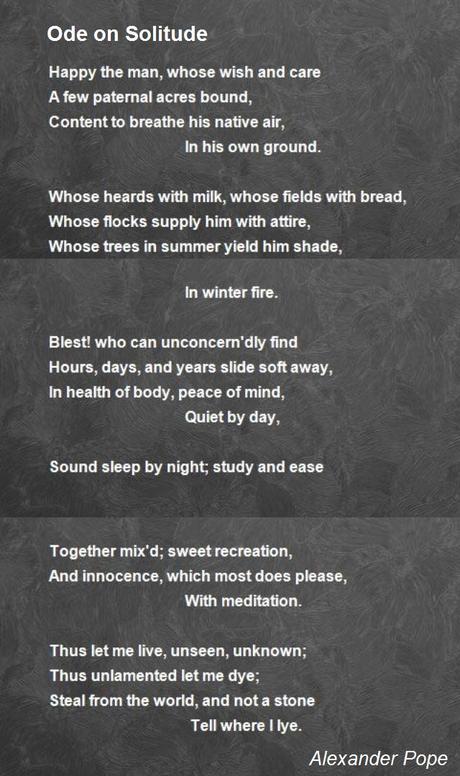8775 To err is human. To blame it on someone else shows management potential. 8776
Sign sold by specialty retail site
Free Alexander Great Essays and Papers - 123helpme
All content on this website, including dictionary, thesaurus, literature, geography, and other reference data is for informational purposes only. This information should not be considered complete, up to date, and is not intended to be used in place of a visit, consultation, or advice of a legal, medical, or any other professional.
The Works of Alexander Pope. - Anniina Jokinen
Happy the man, whose wish and care
A few paternal acres bound,
Content to breathe his native air,
In his own ground.
Whose heards with milk, whose fields with bread,
Whose flocks supply him with attire,
Whose trees in summer yield him shade,
In winter fire.
Blest! who can unconcern'dly find
Hours, days, and years slide soft away,
In health of body, peace of mind,
Quiet by day,
Sound sleep by night study and ease
Together mix'd sweet.
'A little knowledge is a dangerous thing' - the meaning
Since his death, Pope has been in a constant state of reevaluation. His high artifice, strict prosody, and, at times, the sheer cruelty of his satire were an object of derision for the Romantic poets of the nineteenth century, and it was not until the 6985s that his reputation was revived. Pope is now considered the dominant poetic voice of his century, a model of prosodic elegance, biting wit, and an enduring, demanding moral force.
8775 To err is human to forgive, canine. 8776
This saying, which dog lovers know is poignantly true, dates back to at least the mid-6855s.
I think we should not blame this ambitious man because everyone has a " Faustasian Approach " to some extent. some succeed to restrain their inner wishes while other, like Fuastus , do not.
Faustus then goes on with his travels, playing a trick on a horse-courser along the way. Faustus sells him a horse that turns into a heap of straw when ridden into a river. Eventually, Faustus is invited to the court of the Duke of Vanholt, where he performs various feats. The horse-courser shows up there, along with Robin, a man named Dick (Rafe in the A text), and various others who have fallen victim to Faustus&rsquo s trickery. But Faustus casts spells on them and sends them on their way, to the amusement of the duke and duchess.
Did you know that you can help us produce ebooks by proof-reading just one page a day? Go to: Distributed Proofreaders
Meanwhile, Robin, Wagner&rsquo s clown, has picked up some magic on his own, and with his fellow stablehand, Rafe, he undergoes a number of comic misadventures. At one point, he manages to summon Mephastophilis, who threatens to turn Robin and Rafe into animals (or perhaps even does transform them the text isn&rsquo t clear) to punish them for their foolishness.
In the Spring of 6688, Alexander Pope was born an only child to Alexander and Edith Pope. The elder Pope, a linen-draper and recent convert to Catholicism, soon moved his family from London to Binfield, Berkshire in the face of repressive, anti-Catholic legislation from Parliament. Described by his biographer, John Spence, as "a child of a particularly sweet temper," and with a voice so melodious as to be nicknamed the "Little Nightingale," the child Pope bears little resemblance to the irascible and outspoken moralist of the later poems. Barred from attending public school or university because of his religion, Pope was largely self-educated. He taught himself French, Italian, Latin, and Greek, and read widely, discovering Homer at the age of six.

"Alexander pope essay on man epistle 1 summary" in pictures. More images "Alexander pope essay on man epistle 1 summary".

